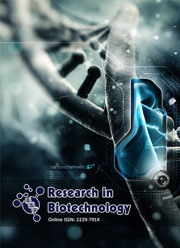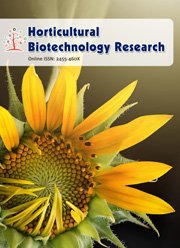Antibacterial potential of methanolic and hexanic extracts of mud lobster (Thalassina anomala) from Bintulu, Sarawak, Malaysia
DOI:
https://doi.org/10.25081/rib.2018.v9.3686Abstract
Present study demonstrated the antibacterial potential of three different body parts, abdomen, carapace and cheliped of mud lobster (Thalassina anomala) which were extracted with methanol and hexane. Three test bacteria were used in this study namely Bacillus cereus, Escherichia coli, and Salmonella enterica. Present study found that in general, methanolic and hexane extracts of different body parts had variable inhibitory responses on different test bacteria with methanolic extract had greater inhibitory response than hexane extract. In methanol extraction, B. cereus significantly had greatest negative impact (p<0.05) on growth after treated with cheliped (21 mm zone of inhibition) extract of mud lobster as compared to carapace (9.2 mm) and abdominal (8.8 mm) extracts of mud lobster. Overall, the growth of S. enterica was much affected with the presence of all methanolic body-part extracts of mud lobster. In hexane extraction, B. cereus growth was not affected with all body-part extracts of mud lobster. However, E. coli and S. enterica were affected with no significantly different (p>0.05) among body-part extracts and between them. Present study concludes that the extracts of mud lobster of all body-part in methanol possess greater inhibitory effect on bacterial growth than extracts in hexane thus the methanolic extract of mud lobster has the potential to be exploited as a natural source of antibacterial agent.



 .
.